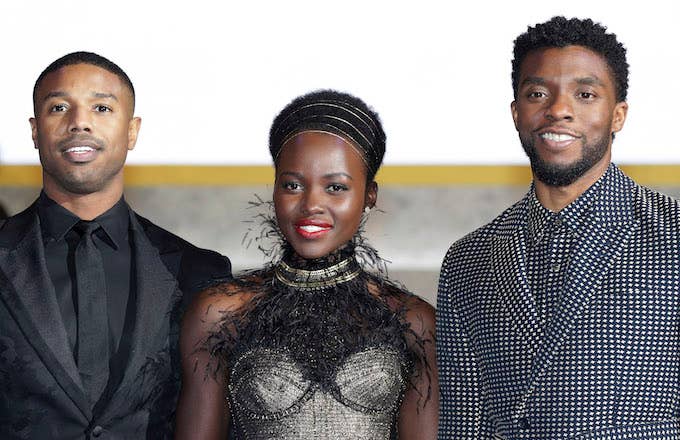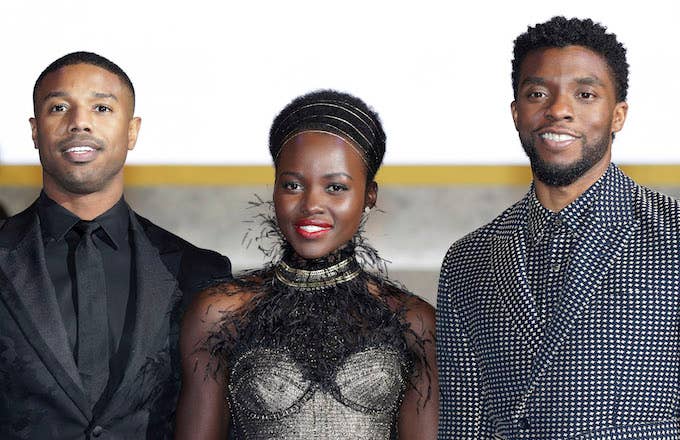
Marvel’s upcoming film Black Panther has a lot of things going for it: stellar reviews from critics, a killer soundtrackproduced by Kendrick Lamar, and records broken at the box office before the movie has even been released. It’s no secret that the movie, although Marvel’s 18th entry in its cinematic universe, has something different going on than most other superhero movies: nearly the entire cast is black—not to mention that it tells a distinctly black story—making it a historic entry in the world of superhero movies and cinema in general. However, a Change.org petition is asking: “what exactly will the black community gain, aside from another symbolic victory?” The petition asks for Marvel to invest 25 percent of its worldwide profit in black communities and “programs within these communities that focus on S.T.E.M” educational programs.
It’s a noble petition, but a very high ask of Marvel as well. For a movie that’s expected to break $120 million at the domestic box office just on its opening day, 25 percent of profits is no small amount of money. Nevertheless, Chaz Gormley, the author of the petition, has not come without his receipts.
He argues that “as marginalized groups have become more vocal, corporations and their savvy public relations departments have turned to catering to these groups—to turn a profit— and [Black Panther] is no different.” Gormley cites a “ clever, well-manufactured marketing campaign Marvel Studios and their parent company The Walt Disney Company” that has specifically (and successfully) targeted the black community with advertisements. For starters, the movie is slated to be released in February, also known as Black History Month. Secondly, Gormley notes that Gil Scott-Heron’s "The Revolution Will Not Be Televised," “which speaks to a larger issue of the monetization of ‘wokeness,’” played in the background of an initial Black Panther trailer. Gormley finds that using these two elements “as merely marketing ploys” is “insulting.”
Gormley goes on to argue that “as black communities across the United States continue to grapple with issues such as gentrification, police brutality, and substandard living conditions,” the community must ask more of the “conglomerates” that use black culture to profit.
"You have the ability to not only be entertained but to leave the theater in February knowing that a portion of your money will be coming back into your community" Gormley adds. The concept of using part of the money’s profits to fund S.T.E.M (science, technology, engineering, mathematics) programs is genius because it’s those programs that would help ensure that a technologically advanced nation like Wakanda might one day exist for real.
At the time of writing, the petition has 628 signatures out of 1,000. If we’re being totally honest, this petition and the concept behind is interesting, but it’s unlikely to ever come to fruition, at least in the exact way Gormley has proposed.
At the same time, Black Panther has already been hailed as a prime example of representation, and many are going above and beyond to make sure those who would benefit from seeing it do get a chance to do so. For example: Octavia Spencer has pledged to buy out a movie theater so people from underserved communities in Mississippi can watch it; Lupita Nyong’o’s father scored a screening for people in her hometown in Kenya; a middle school went viral after announcing they would all go see the movie as part of a day of “cultural classes.” Also, the movie has brought in nearly $90 million to the Georgia economy, where it was filmed. It may not be 25% of profits, but it’s a small start anyway.

